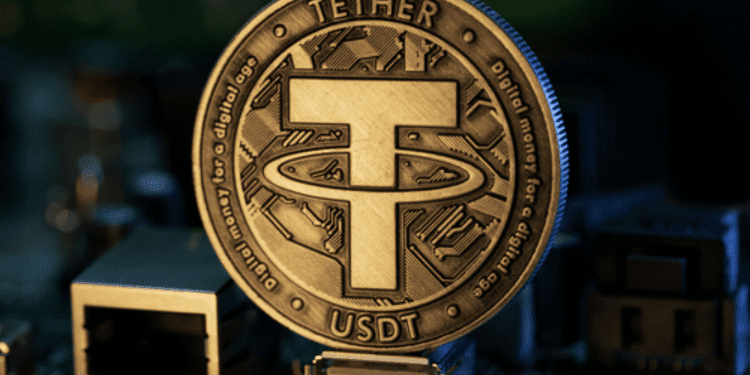- Tether is the company behind the most widely traded stablecoin, USDT.
- The WSJ reported that Tether and Bitfinex opened new accounts using fake names, false documents, and shell companies.
- Tether is a controversial company because it has yet to provide documentation to prove that its stablecoin is backed by U.S. dollars and the entity is not independently audited.
The Wall Street Journal recently reported that Tether, one of the world’s largest stablecoin issuers, allegedly used fake documents and shell companies to open bank accounts at various banks in 2018. This news is no surprise to those who have followed Tether’s history, as the company has been controversial since its inception.
Tether’s USDT stablecoin is one of the most widely traded cryptocurrencies, with over $71 billion market capitalization. Because its value is “pegged” to the US dollar, Tether relies on traditional banks to process transactions. However, the company needs help maintaining its access to the global banking system.
Falsified Documents and Shell Companies Used to Open Bank Accounts
The WSJ report claims that Tether and Bitfinex, its partner exchange, used false documents and shell companies to gain access to the banking system after Wells Fargo stopped processing transactions from Tether’s Taiwanese bank account in 2017. The companies allegedly opened new accounts under different names, including one in Taiwan using the name of a company called Hylab Technology and another in Turkey under the name of a firm called Denix Royal Dis Ticaret Limited Sirketi.
The Turkish account was subsequently referenced in a US Department of Justice investigation into terrorist financing. The WSJ reported that Izz ad-Din al-Qassam Brigades, a terrorist organization with ties to the Palestinian group Hamas, used the bank account set up by Tether to convert $80 million worth of crypto donations into cash.
Tether’s Controversial Reputation and Lack of Transparency
This is not the first time Tether has faced accusations of impropriety. In 2019, the New York Attorney General’s office launched an investigation into Tether’s finances and alleged that the company had “made false statements about the backing” of its stablecoin. Due to the investigation, Tether agreed to no longer do business in New York.
Tether has also faced criticism for its lack of transparency. The company has yet to provide documentation to prove that its stablecoin is backed by US dollars and is not independently audited. These factors have led many in the crypto community to question the legitimacy of Tether and its stablecoin.
Despite these controversies, Tether remains a crucial player in the crypto space. USDT is widely traded and is used by traders as a place to park their cash in times of high volatility because its value is fixed at $1. Tether is particularly popular in markets where dollars are restricted or unavailable and in DeFi, which seeks to disintermediate banks.
Tether denied the WSJ’s allegations and said the report is “wholly inaccurate and misleading.” The company claims to have “world-class compliance programs” and to adhere to applicable anti-money laundering, know-your-customer, and counter-terrorist financing legal requirements.
The allegations against Tether highlight the challenges facing stablecoin issuers. These digital assets have become increasingly popular in recent years, as they offer the benefits of cryptocurrencies without the volatility often associated with them. Stablecoins must maintain a high level of transparency and accountability to gain the trust of users and regulators.














